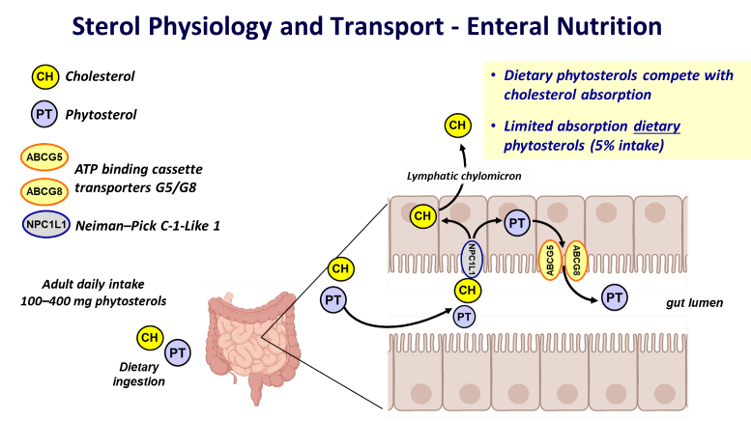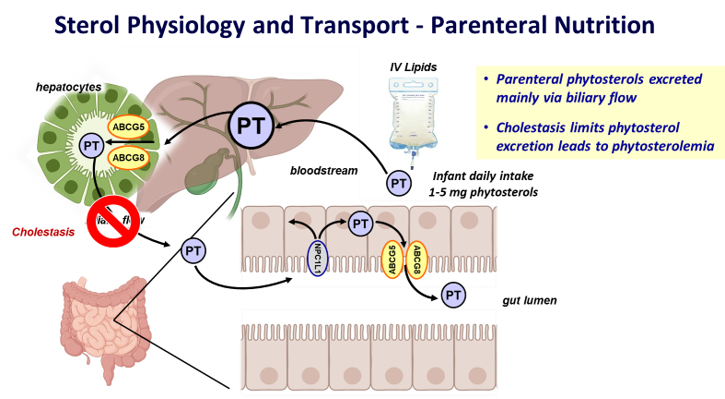Current projects in the laboratory seek to identify the cellular and molecular mechanism that lead to PNALD and metabolic dysfunction associated with prematurity and neonatal parenteral nutrition (PN) support. Our work has shown that chronic PN induces hepatic steatosis, cholestasis and insulin resistance in both term and premature neonatal piglets. We are exploring how nutrients affect inter-organ and local cellular signaling pathways involved in hepatic lipid metabolism and bile acid homeostasis. Studies led by former fellow and CNRC faculty, Greg Guthrie, Ph.D., have shown how specific nutrients in commercial lipid emulsions (Intralipid, Omegaven, SMOFlipid) alter the susceptibility to PNALD. These studies showed that new generation fish oil-based lipid emulsions (Omegaven and SMOFlipid) markedly reduce the incidence of cholestatic liver injury and steatosis compared to Intralipid. Phytosterols are a key ingredient in soybean lipid emulsions and our recent studies in a model of preterm piglets provide evidence that the amount of phytosterols present in intravenous soybean oil–based emulsion is directly associated with increased serum markers of cholestasis. In preterm piglet studies, administration of phytosterol-depleted lipid emulsions reduced markers of cholestasis and liver injury.










